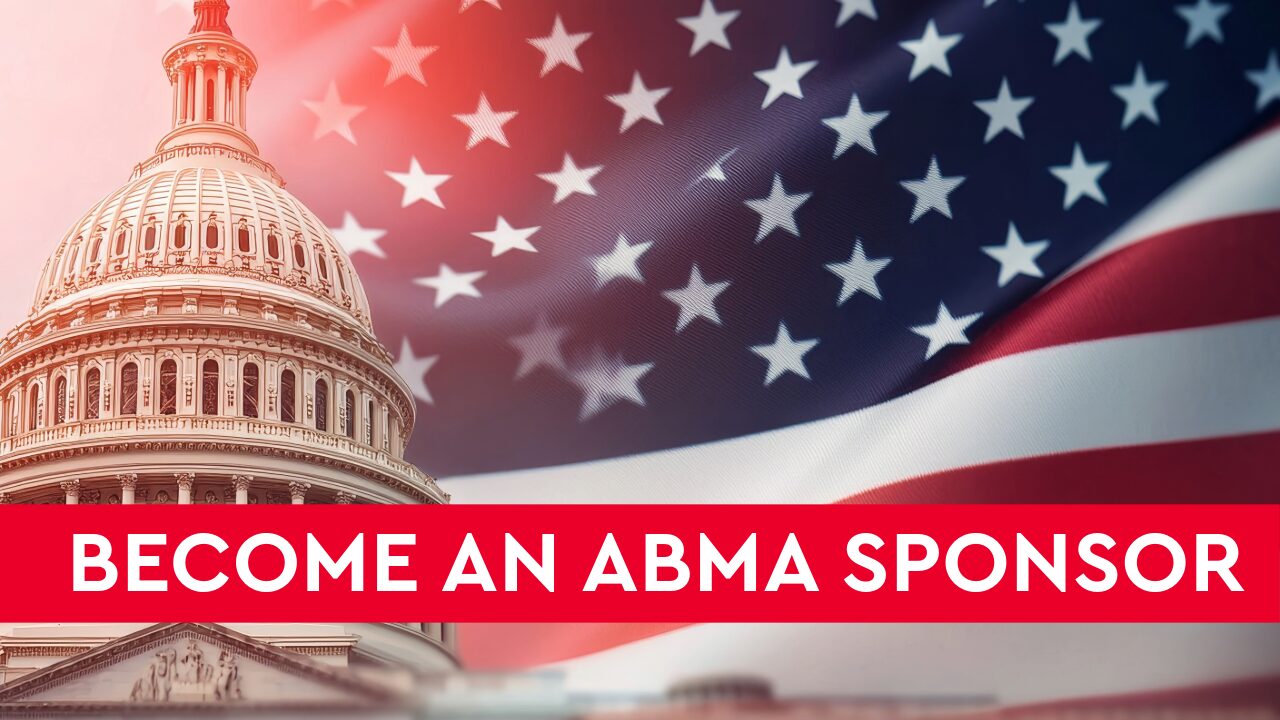Supply Chain Bills Advance in House
On Tuesday, the House Transportation & Infrastructure Committee held a mark-up where several key ABMA-supported trucking and shipping related measures advanced.
Primary among them was H.R. 3372, legislation led by Rep. Dusty Johnson (R-SD) that authorizes a pilot program whereby states may opt in to allowing 91,000-pound rigs equipped with a sixth axle to travel on their portion of the federal interstate highway system. This has been a long-time priority for the shipping community. The last time Congress took action on this issue was 2015 when the bill failed on the House floor. We will be working with our Congressional champions and with our trade association allies in promoting passage of this key measure. The bill passed out of committee largely on a party-line vote (33-27) and it does not have a companion in the Senate. Nevertheless, we are pleased with this important first step and will ramp up our advocacy accordingly.
Sponsor Rep. Johnson had this to say about yesterday’s action:
“Increasing the amount of cargo a truck can carry on the road with the addition of a sixth axle is a safe and efficient way to further streamline our supply chain. This commonsense update to the rules of the road lowers greenhouse gas emissions, mitigates factors leading to supply chain backlogs, reduces damage to roads, and provides an extra set of breaks to increase stopping capacity and safety. The demand is there to carry more goods, it’s time to modernize.”
The committee also approved H.R. 3013, the Licensing Individual Commercial Exam-takers Now Safely and Efficiently (LICENSE) Act of 2023. This bill, led by Rep. Darin LaHood (R-IL), codifies two waivers that were issued during the pandemic to make the process of obtaining a commercial driver’s license (CDL) more streamlined and efficient. A good example is that prior to these waivers, CDL test takers had to take the CDL exam in the same state in which they received their training. So, a resident of Ohio would have to travel back to West Virginia if that is where the applicant received training. The LICENSE Act simply makes permanent some of these commonsense actions that FMCSA took during the pandemic to free up the supply chain, albeit modestly. This bill is an ABMA that we discussed during our Advocacy Day in March, and we have an advocacy campaign on our website to get more cosponsors.
Also approved was H.R. 2367, the Truck Parking Improvement Act, which seeks to address a shortage of truck parking by increasing resources for the construction of new Commercial Motor Vehicle (CMV) parking, added parking at current CMV parking areas, and improvements to existing CMV parking. It also requires CMV parking spaces constructed to be accessible to all CMVs without charge.
On the ocean ports front, the committee reported out H.R. 1836, the Ocean Shipping Reform Implementation Act of 2023. This legislation builds upon the Ocean Shipping Reform Act of 2022, including by allowing the Federal Maritime Commission to review complaints about market manipulation and anti-competitive operations of maritime exchanges. Rep. Dusty Johnson issued this statement about his bill:
“The Ocean Shipping Reform Act made a positive difference in our ocean shipping supply chain, but there is more to be done. Passing OSRA 2.0 is crucial to strengthen the FMC’s authority to crack down on unfair trade practices and combat China’s influence over United States supply chains.”
One bill that was on the docket but was pulled during consideration is the Drive Safe Integrity Act, which aims to boost participation in the Safe Driver Apprenticeship Pilot program that was enacted as part of the Inflation Reduction Act. This pilot would allow younger truck drivers ages 18-21 to operate trucks across state lines. Participation in the pilot has been lackluster due to some extraneous requirements imposed on the program by the Department of Transportation. This bill seeks to remove those requirements and directs DOT to report to Congress on the status of the program and corrective actions DOT has taken to improve participation. Evidently, there was some confusion about the bill during committee deliberations and the decision was made to pull it. We expect this bill to be considered again at a markup of additional supply chain measures expected in September.
An important ABMA priority bill that did not make the cut for this markup is the Strengthening Supply Chains through Truck Driver Incentives Act, legislation that authorizes lucrative tax credits to new and existing truck drivers to attract more drivers to the profession and keep existing drivers behind the wheel. Again, this bill may be part of the follow-up action in Committee in the fall.
Tax
ABMA picked up in conversations on the Hill this week that the House Republican tax package will be unveiled sometime in June. That action will kick-off negotiations that will hopefully culminate in passage of meaningful tax benefit extensions later this year.
The package is said to include an extension of the 100 percent bonus depreciation benefit (ALIGN Act) that began to ratchet down at the beginning of 2023. Indications are that the package will also include an extension of the research and development tax credit that allowed companies to fully write off R&D expenses in the same year they are incurred. This benefit expired in 2022. We also expect the Sec. 199A deduction for pass-through businesses to be extended as well. This provision, enacted as part of the Tax Cuts and Jobs Act, allows S-Corporations and other pass-through entities to deduct up to 20 percent of their qualified business income. This benefit expires in 2025. Also in the mix for those in high state and local tax rate states is an increase in the state and local tax (SALT) deduction. And to bring Democrats to the table in negotiations, an expanded Child Tax Credit is under discussion.
ABMA is prioritizing the bonus depreciation and Sec. 199A pieces of this package. We will keep you apprised of our progress.




